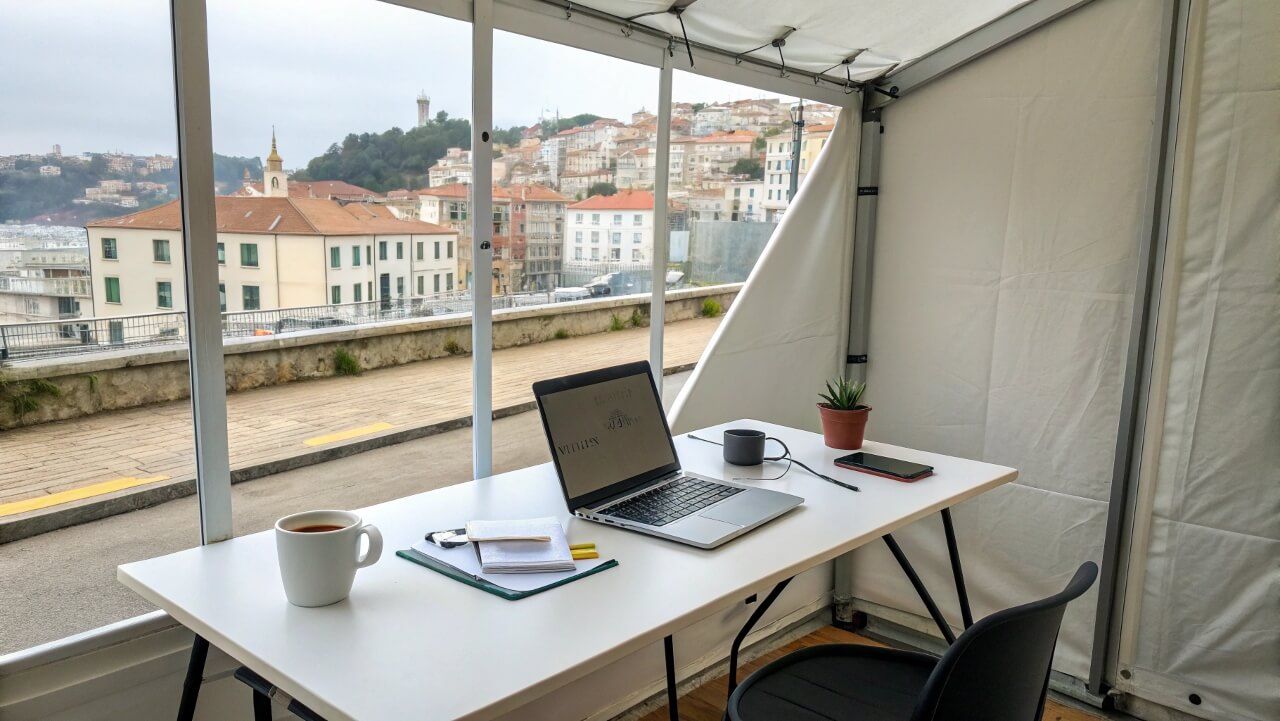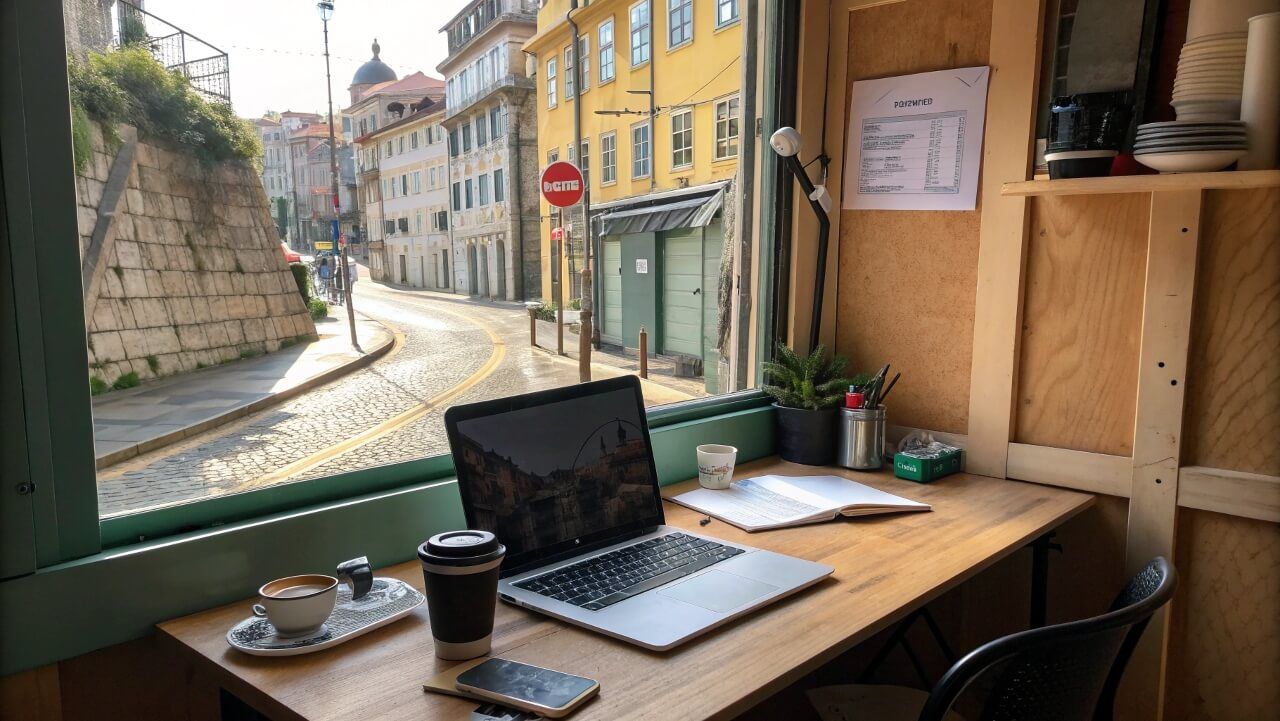People often want to know how to set up a temporary office abroad without all the trouble and time it takes. You used to work at home, but now you have a desk with a view of the beach or the sound of the city. People who want to see more of the world will love setting up an office for short-term stays. It's a great idea for people who work from home full-time or as freelancers on short-term assignments abroad, but it can be too scary for people who have never done it before. We'll talk about planning, choosing a place to work, setting up your workspace, getting things done, and how productive you are.
Planning Your Adventure: Setting the Foundation
Make it easy for you to set up. First, make sure you have a broad picture of your trip abroad: know what you want to get out of it. Are you there for a long time to relax and meet a goal, or are you there for three months to learn about a different culture? Be clear on how long the trip is going to last because that affects a lot of things, from getting a ticket to what to pack.
For example, many countries now offer digital nomad cards, such as Portugal's D7 or Estonia's e-Residency, which let you legally work without having to go through a lot of hoops. As soon as possible, do this. Search on formal government websites to learn about other needs, like showing proof of income and health insurance.
Next, set aside money for it. When people say "budget", they usually only mean "amount of money for flights and lodging". There are different levels of workspace costs, from free Wi-Fi from a café to a membership to a co-working place with perks. Also, try to include a little extra in your budget in case something goes wrong, like the value of the dollar changing, or you need to buy tools at the last minute for an emergency presentation.
Do this ahead of time: look for online expatriate groups before you leave. The real talk about what kinds of traps to avoid happens in these kinds of forums and social groups. With this earlier work, things will go smoothly, letting you focus on the more fun parts of your temporary life abroad.
You could really make your work setup fit the local rules with just a few questions and business consulting. That way, you'll be legal and productive from day one. It's like having someone draw a road map just for you.
How to Pick a Place: Where Work and Happiness Meet
Where you work is determined by where you choose to live. Actually, this place should help you work better without getting in the way too much. For instance, there are different time zones that mean you have to stay in line with the home team. For example, if you're in the US and go to Europe, you might overlap with fewer hours of the night, but going to Asia might mean really late hours of the night. Find a place with great facilities, like fast internet, an English-speaking community, and a lively atmosphere that is good for working from home.
Some popular places to visit are Bali, which has a laid-back vibe and co-working spaces, and Lisbon, which is sunny and full of startup hustlers. Don't be afraid to look outside the box, though. Places like Chiang Mai, Thailand, that aren't as well known can have quiet scenes and low prices. Nomad List has tags for connections that show how fast the internet is, how safe it is, and how fun it is. For your own peace of mind, check neighbourhood advisories to make sure you're safe.
Also, cultural fit is important. Berlin might spark your creativity if you like chaos, while New Zealand's quiet trails might be more your style. Finally, make sure that the job you choose fits with how you work. Are you a quiet genius or a team player? This choice saves you the stress of having to move in the middle of your stay because the place didn't click.
Finding Your Workspace: Which Temporary Office is Best for You?

Once you know where you want to work, you can do it. Gone are the days of putting together a desk in a hotel room; now there are many places to get work done.
- Co-working Spaces: Places, like WeWork and local versions of it, are likely the best way to get day passes, hot desks, or private offices all in one place. There is high-speed Internet, meeting rooms, social events, and fun parties thrown in so that a temporary place of work can quickly feel like home.
- Cafés: In countries that love coffee, like Italy and Vietnam, cafés with fast Wi-Fi are a good place to go if you are on a tight budget. Just use an app or read reviews online to check out the place you might stay before you go.
- Short-Term Rentals: Short-term rentals are often a great way to get some privacy for work. Check out some great Airbnb listings that are marked as "remote work friendly" and have ergonomically designed workspaces.
- Free Options: Free and inspiring things can also be found in libraries and on college grounds. Some towns also have a lot of pop-up workspaces and business centres in hotels that are easy to get to.
If you do decide to set up an office, the goal is to stay open. And you need to keep your office clean, so you can concentrate better. If you're in Australia, office cleaning Fitzroy will take care of it so you can work.
Once you've decided on a place, spend a day there to make sure it fits your style. That way, you won't have to deal with those heartbreaking days when the internet is down or the noise level makes it impossible to get into the groove.
Taking Care of the Logistics: Making Things Easier
These days, logistics can make or break things, but if you're smart, you can handle them.
- Technology: Start with the technology. You might want to buy a global adapter that comes with a free portable Wi-Fi hotspot and cloud storage in case your network service goes down. With VPN apps, you can keep your data safe on a public network. Safety is very important when you're in a new place.
- Visas and Paperwork: Is the visa and stuff okay? Check the rules again. Some places will need you to show proof of travel or money.
- Health and Finance: Health insurance protects you against unexpected medical bills that come up. Also, don't forget about taxes; have a professional look over your earnings to see how they are handled abroad so that you don't get any nasty shocks when it's time to file. And if you’re running a small team on the road, reliable payroll processing keeps everyone paid on time and compliant with local labor rules.
- Essential Gear: Noise-cancelling headphones, a nice multiport charger, and comfortable ergonomic tools are all must-haves that can be used anywhere. Having non-essentials shipped ahead of time will help with stays that last a long time. You can get around without a car by using rideshare or public transit apps.
Set up your habits as soon as possible. Jet lag can throw you off, so start with some light workdays. With these steps, the chaos that could happen is turned into a smooth shift, and your temporary workspace becomes your home from the start.
How to Stay Productive and Balanced in Your New Space
When you work abroad, it's not just about the place; it's also about how you think and what you do.
- Set Boundaries: You can mix work and play by setting limits, like focusing on work in the mornings and going on trips in the afternoons. Time-tracking apps could help you stay on track without being too strict.
- Connect with Others: To avoid feeling lonely, join a local group or an online nomad community. Talking about your experiences will keep you motivated.
- Prioritize Self-Care: To avoid stress, make sure you exercise, eat well, and get enough rest. If the newness wears off, switch up your workspace or your habit to get excited again.
- Embrace the Culture: Accept the lifestyle while still getting things done. Just learning a few words or trying the local food can spark a lot of creativity.
Every week, look at your progress and make changes as needed to make sure you are having fun and getting a lot done during your break.
That's it! You now know how to set up a temporary office abroad without any of the standard problems. These tips will help you work from anywhere, at any time, by deciding where to work, getting things done, and being more productive.
